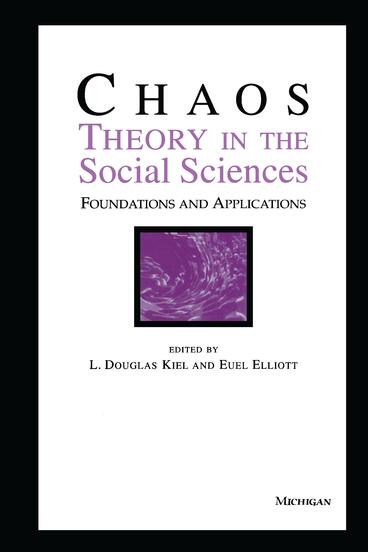Chaos Theory in the Social Sciences
Foundations and Applications
Applications of chaos theory in political science, economics, and sociology
Description
Chaos Theory in the Social Sciences: Foundations and Applications offers the most recent thinking in applying the chaos paradigm to the social sciences. The book explores the methodological techniques--and their difficulties--for determining whether chaotic processes may in fact exist in a particular instance and examines implications of chaos theory when applied specifically to political science, economics, and sociology. The contributors to the book show that no single technique can be used to diagnose and describe all chaotic processes and identify the strengths and limitations of a variety of approaches.
The essays in this volume consider the application of chaos theory to such diverse phenomena as public opinion, the behavior of states in the international arena, the development of rational economic expectations, and long waves.
Contributors include Brian J. L. Berry, Thad Brown, Kenyon B. DeGreene, Dimitrios Dendrinos, Euel Elliott, David Harvey, L. Ted Jaditz, Douglas Kiel, Heja Kim, Michael McBurnett, Michael Reed, Diana Richards, J. Barkley Rosser, Jr., and Alvin M. Saperstein.
L. Douglas Kiel and Euel W. Elliott are both Associate Professors of Government, Politics, and Political Economy, University of Texas at Dallas.
L. Douglas Kiel and Euel W. Elliott are both Associate Professors of Government, Politics, and Political Economy, University of Texas at Dallas.

